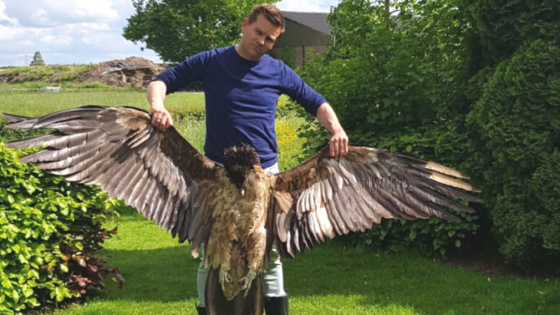Vulture’s death by wind turbine could have been avoided, says minister


The death of the bearded vulture which was hit by the blade of a wind turbine in Wieringerwerf in May, could have been prevented if an advanced bird detection system had been in place, caretaker agriculture minister Carola Schouten has said in answer to MPs’ questions.
Bearded vultures, whose wingspan can reach some three metres, are one of the largest birds in Europe and on the ‘near threatened’ list of the International Union for the Conservation of Nature, which means they could face extinction in the future.
The animal, which was part of a European breeding programme, was found lifeless beside a turbine by Hans Pohlmann of the Vulture Conservation Foundation who had been monitoring its movements.
Some 50,000 birds a year currently fall victim to the turbine blades which is enough to adopt the warning system across the board, Pohlmann said.
In countries like Spain and Portugal where big swathes of land are given over to wind parks and where vultures are common, turbines have already been fitted with the warning system which stops the blades from turning if a large bird approaches.
Wind farm Krammer in the province of Zeeland, which is home to the osprey, is the only Dutch wind farm to use the system.
The question of whether all turbines should have the system, plus a so-called black blade which would make the moving blade more visible to birds, was a matter for the provincial authorities, Schouten told MPs.
Schouten also said systems were costly – some €20,000 to €35,000 per turbine plus maintenance costs – and would lead to production loss.
Zeeland wind farm Krammer said the loss of electricity caused by shutdowns amounts to €120,000 to €180,000 a year. ‘That is quite a lot. But we want the birds and the osprey in particular to stay in the area,’ project manager Gijs van Hout told local broadcaster Omroep Zeeland last year.
Thank you for donating to DutchNews.nl.
We could not provide the Dutch News service, and keep it free of charge, without the generous support of our readers. Your donations allow us to report on issues you tell us matter, and provide you with a summary of the most important Dutch news each day.
Make a donation